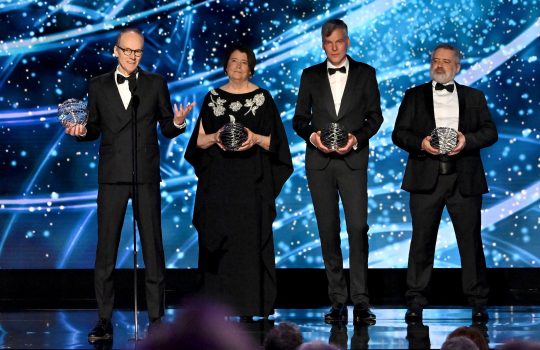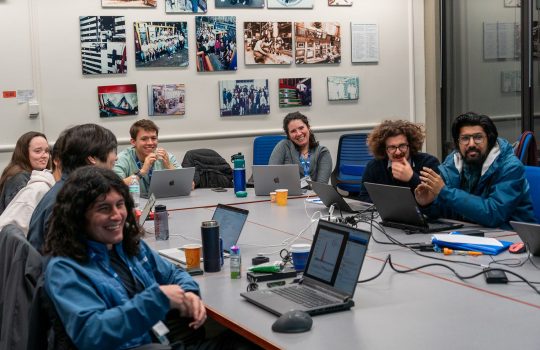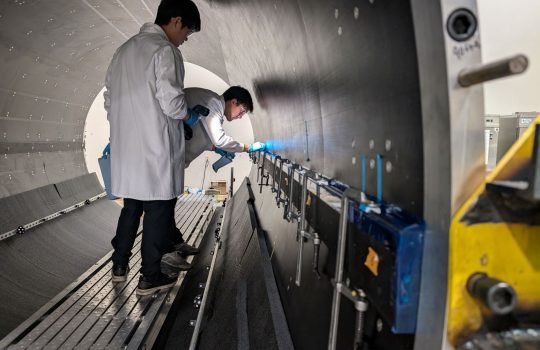The CMS experiment, which studies particle collisions at the Large Hadron Collider at CERN in Switzerland, is heading into a new era of research under the guidance of Fermilab scientist Patty McBride, one of two incoming deputy spokespersons.
She begins her two-year term on Sept. 1, serving in the role with Luca Malgeri of CERN. She will serve as deputy to incoming CMS spokesperson Roberto Carlin, INFN researcher and professor at the University of Padua, who concludes his term as deputy spokesperson.
McBride says that her love for physics began in eighth grade, when her mom gave her a book on particle accelerators, sparking her interest in investigating the subatomic world. After studying physics in college at Carnegie Mellon, she received her doctorate at Yale University and a postdoc at Harvard University. She started at Fermilab in 1994 and worked on a number of experiments and in various leadership positions. In 2005, she joined the CMS collaboration, working as head of the CMS Center at Fermilab from 2012 to 2013 and, later, as U.S. CMS operations program manager. In 2014, she became head of the Fermilab Particle Physics Division, where she served for four years.
“Patty is ideally suited to be one of the leaders of the international CMS collaboration since she brings deep experience in many aspects of particle physics,” said Joel Butler, Fermilab scientist and outgoing CMS spokesperson. “She possesses excellent judgement and problem-solving skills and the ability to inspire people to work together toward common goals.”
The giant CMS detector records particle collisions at the Large Hadron Collider to help scientists better understand the smallest constituents of our universe. In 2012, CMS co-discovered, along with the LHC’s ATLAS experiment, the long-sought-after Higgs boson, which led to a Nobel Prize in 2013 for the theorists who proposed it. The 4,000-strong CMS collaboration is now taking precise measurements of properties of the Higgs boson and searching for new physics, such as particles that could make up dark matter.
As deputy co-spokesperson, McBride will push to publish new physics results from the most recent LHC run and to prepare the experiment for the next run. She will also help direct the project to upgrade the detector to handle the higher-intensity collisions that will emerge from a revamped LHC, to come online in 2026. The new and improved High-Luminosity LHC, as it is called, will crank up the number of particle collisions to five to seven times its current rate and generate 30 times the data CMS has collected so far.
“CMS’s upgrades will prepare the detector and its instruments for the avalanche of data from the collisions once the LHC is upgraded,” McBride said.
McBride says she’s excited to help lead CMS into the next phase of its life and to work with an international collaboration from over 40 countries.
“I’m looking forward to working with such a large group of scientists from all over the world who will push CMS to improve,” McBride said. “It’s a privilege to be a part of a group that made such an important discovery in 2012, and it will be a privilege to help lead them to further discoveries.”




